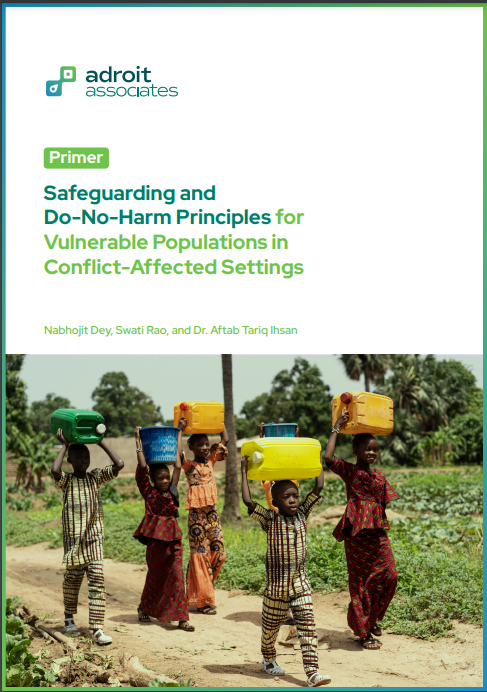
The purpose of this primer is to establish a framework that is grounded in respect, equity, informed consent, and cultural sensitivity. It aims to assist researchers, institutions, and organizations in understanding and implementing practices that not only respect but prioritize the well-being and dignity of vulnerable individuals in conflict-affected settings. By adopting these principles, the primer seeks to foster an environment where interventions and research involving vulnerable groups are conducted responsibly, transparently, and with an unwavering commitment to ethical standards.
Safeguarding, a proactive approach focused on the safety and well-being of individuals, particularly those in vulnerable situations, is integral to research and humanitarian efforts (Barron et al., 2022). This concept is about creating and maintaining environments that prevent harm, abuse, or neglect, ensuring that such concerns are promptly and effectively addressed. In research contexts, safeguarding involves a range of practices to protect vulnerable participants from exploitation, harm, and other negative outcomes that might arise from their involvement in research activities.
The Do-No-Harm principle, a foundational ethos in both research and humanitarian work, complements safeguarding by emphasizing the importance of avoiding inadvertent harm while providing assistance during humanitarian work or in a development project, or while gathering information (International Federation of Red Cross and Red Crescent Societies, 2016). This principle is especially crucial when working with vulnerable populations, who are often more susceptible to harm and less equipped to handle its consequences. It necessitates a thorough understanding of the potential impacts of research interventions and a commitment to careful consideration and mitigation of any negative effects (Molesworth, 2022). Both safeguarding and the Do-No-Harm principle underscore the ethical imperative in research and humanitarian intervention practices, emphasizing the need to protect and respect the rights and dignity of all participants, especially the most vulnerable. These principles guide researchers and practitioners to not only focus on the objectives of their work but also on the broader implications and potential unintended consequences of their actions.


